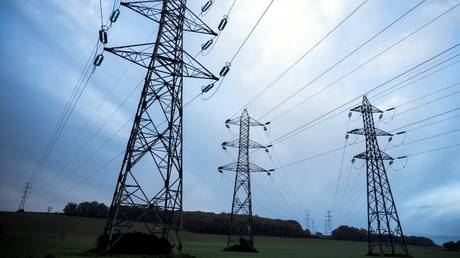
The bloc’s industry has been hammered by rising power costs since Brussels sanctioned Russia
Demand for electricity in the European Union will fall by 3% this year to its lowest level in two decades, the International Energy Agency predicted in a report on Thursday. The agency named the EU’s declining industrial output as the key factor behind the slump.
Combined with last year’s 3% fall in demand, the slump is now the largest in EU history, bringing the bloc’s electricity consumption back to levels not seen since 2002, the report stated.
Two thirds of the reduction came from energy-intensive industries last year, and “this trend has continued well into 2023,” the report explained.
European industries were hit hard by the EU’s decision to embargo Russian fossil fuels in response to Moscow’s special military operation in Ukraine. Combined with rising demand after the coronavirus pandemic of 2020, the energy embargo drove wholesale electricity prices to a record €430 ($478) per megawatt hour last August, an increase of more than double since that January.
Although prices have since stabilized, the EU’s industrial sector has not recovered. Industrial output across the bloc fell by 1.3% between February 2022 and March 2023, according to the latest figures from the EU’s statistics agency. The decline has been more pronounced in Germany, a country that prior to last year depended heavily on Russian energy to power its immense industrial sector.
Some of Germany’s largest manufacturers – like chemical giant BASF and automaker Volkswagen – have cut down on production at home and announced the construction of new plants abroad, while an unexpected drop in the country’s industrial output in May sparked fears of a prolonged recession.
Europe’s deindustrialization is being encouraged from abroad, the report noted, pointing out that subsidies like the US Inflation Reduction Act and Japan’s Green Transformation Act “are influencing production curtailment, plant closures, and the pausing and diverting of investment.”
Outside the EU, electricity demand is expected to fall in the US by almost 2% this year, and in Japan by 3%, the IEA’s report predicted. However, as the world’s most developed economies struggle, increased consumption in China and India will see global demand for electricity increase by just under 2% this year.




